When you purchase stainless steel spring material to produce stainless steel coil springs, you want to ensure that the elongation and hardness of the raw materials are consistent. As we all know, elastic materials such as stainless steel coil springs have strict requirements on the hardness and elongation of stainless steel coils. Therefore, it is necessary for the stainless steel coil production plant to achieve both during production and to achieve timely communication.
This means that the production plant must be modern, with an ERP production management system, and strictly abide by ISO9001 production management. At the same time, she also needs to have a sound foreign trade department that can reach in contact 24/7 in a timely manner.
Yaoyi is a factory founded in 1996. Its founder is a steel research and development engineer who has strict control over product quality. At the same time, yaoyi will complete the modern management transformation in 2020, and the tailor-made ERP system ensures that each production step is operated in strict accordance with the production process.
In 2018, yaoyi founded yaoyi in accordance with market customer needs and established Yaoyi Import and Export Co., Ltd in 2017. This foreign trade company specializes in selling stainless steel coils and other products outside of China. 24/7 to provide you with services in a timely and efficient manner.
At the same time, yaoyi also has a professional testing laboratory, which can do salt spray test, tensile strength test, fatigue test, material composition test, etc. Accurate control of your materials.
In this detailed guide, I will specifically explain the stainless steel coil spring and its material selection and application and other related issues.
let’s start.
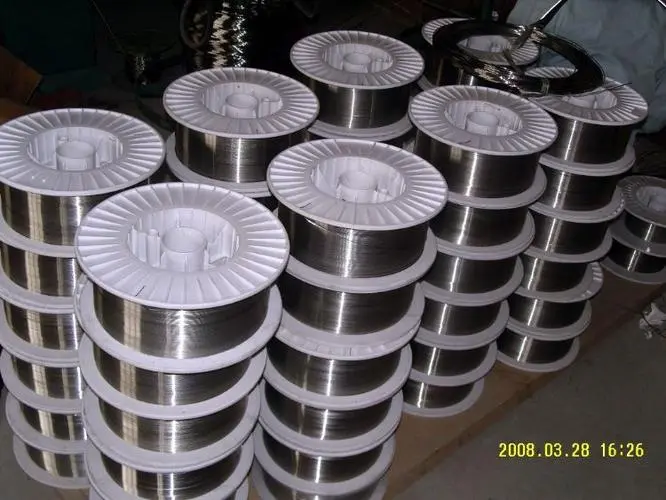
HV: 150~190. This is a stainless steel coil with lower hardness and tensile strength. It is an annealled stainless steel coils. It is used to produce mechanical equipment And parts, and because of its strong plasticity, it can be used to make machinery housing or furniture.
HV: 250~300. It is also called half-hard stainless steel coil. It has certain tensile properties. 1/2H stainless steel coil needs to be annealed. It is mainly Used in machining and parts industry.
HV: 310~360. It is the stainless steel coil that yaoyi is best at. 3/4H stainless steel coil has good extensibility. After machining, it can be quickly hardened. It is mainly used to produce elastic products, such as clamps, springs, oil pipelines, etc.
HV: 370~580. Full Hard stainless steel coil has high tensile strength and hardness. It is mainly used to produce mechanical springs and some products that do not require secondary deep processing. It is also widely used in the production of knife.
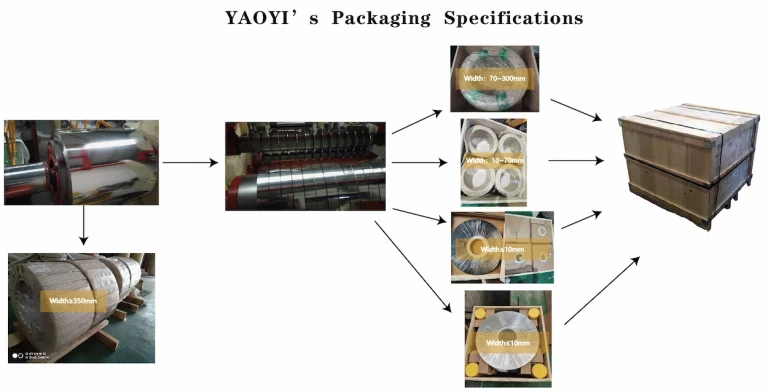
Steel is a versatile material that manufacturers can shape into numerous fabrications, including coil springs. Besides that, the component produced retains the original properties the steel grade has. Thus, this characteristic of steel allows plenty of manufacturing options to suit different applications.
Coil springs are one of the most powerful forms of fabrications that manufacturers can make with steel. It is a mechanical device that regulates the transfer of forces between two surfaces. This product can either absorb or maintain forces between two bodies. They are usually made from elastic materials like steel, fabricated in a helix or spiral shape using an automatic coiler machine.
The shape and characteristic of coil springs vary depending upon the usage. Some of the main steel coil spring types are as follows:
Compression coil springs regulate compression or transfer of forces between two surfaces. Manufacturers commonly use this type on car suspension systems that stabilize the wheel load. Aside from that, it also absorbs shock that the passengers can feel from road bumps or uneven surfaces.
Tension coil springs are designed to resist tension or stretching. Manufacturers usually use these springs for suspended applications. Tension coil springs usually have hooks or mounting brackets on both ends where loads and suspension points are attached.
Torsion coil springs are designed to counteract torsion or twisting. The typical example of this type is mechanical hinges, clipboards, and roll-up doors. It functions by rotating components to their desired position or arrangement.
You may notice other types existing on the market with the same varying shapes and sizes. However, all those are typically variants springing from the same concept as these types we’ve mentioned.
ASTM A240 Material: Applications and Classifications
Stainless steel coil springs are simply coil springs made from a stainless steel base. Coil springs inherit the properties of the specific stainless steel grade used. Corrosion resistance is one distinct characteristic that makes up stainless steel. Thus, coil springs made from stainless steel are likely to showcase this characteristic.
You can tell whether your coil spring is stainless steel if it exhibits the same properties stainless steel has. As an overview, here are the properties you should be looking for in stainless steel coil springs:
Appearance is the easiest way of checking but is unreliable and cannot be your standalone method for verification. However, it is still worth noting because it supplements other methods of checking.
Stainless steel available in the market mostly comes in a polished finish. Take note that we said “mostly” because there are also different finishes of stainless. However, stainless steel has a chromium coating that gives it this distinct sheen or polish. This sheen can be aesthetically pleasing and usually used without further need for coatings like paint.
Typically, normal carbon steels are lackluster or dull, while stainless steel has a sheen or polished.
After you have initially checked your stainless coil springs appearance, the next thing to do is look out for rust. Stainless steels have high corrosion resistance; thus, the presence of rust contradicts this property. Although different grades of stainless steel have different corrosion resistance levels, most are capable of resisting typical rusting conditions.
Thus, needless to say, an authentic stainless steel coil spring does not foster rust build-up under typical conditions.
Stainless steel is usually non-magnetic or has low levels of magnetization. Most stainless steels are chromium-nickel alloys that create an austenitic non-magnetic structure. In contrast, your regular carbon steel relies on iron for a structure that naturally makes them magnetic. If your magnet does not stick, then it’s possibly stainless steel.
This checking, however, excludes the 400 series, which is magnetic due to the absence of nickel. Without nickel, the 400 series exhibits a ferritic magnetic structure akin to carbon steel.
Additionally, cold working processes can also make stainless steel magnetic. There is also the consideration of other non-magnetic metals like aluminum. So be sure to check these conditions while checking.
Stainless steel is durable, albeit a bit inferior to carbon steel in terms of strength and hardness. This characteristic is because stainless steels have lower carbon content compared to carbon steel. Carbon content makes steel harder, more malleable, and formable. Thus, in terms of these aspects, stainless steel is relatively weaker compared to regular carbon steel.
This method is possibly the most assuring albeit impractical way of checking whether your products truly are stainless steel. You don’t necessarily have to conduct laboratory testing since manufacturers issue steel specifications that they are accountable for. However, checking out a steel specification can be tedious and requires a significant amount of knowledge in metallurgy.
Typical issues of stainless steel in the market are the 300 series which are austenitic steels because of their chromium-nickel base. Meanwhile, carbon steels are typically ferritic because of their iron content. These differences, of course, have respective effects on their properties, like magnetization, as mentioned.
Further comparison includes the chemical composition in which you can see the point difference between the two. The most prominent distinction is that stainless steel needs to have at least 10.50% chromium content. Meanwhile, carbon steel typically have chromium content lower than 10.50%
You can, of course, make these verifications easier by consulting a professional or looking for a trustworthy manufacturer. You can also check the specification issued by regulating the organizations, but check for reliable references.
Your Best Supplier Of Stainless Steel Coil Always Provide You With SS Coil From China
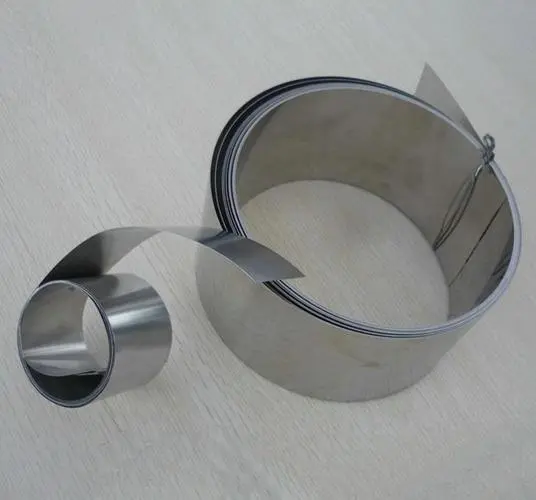
As we have mentioned, coil springs inherit the properties of the steel grade they are based on. In the case of stainless steel, we have numerous grades that can base coil strips. Each of these grades has significant differences, which makes it desirable for particular applications. However, it is impractical to manufacture coil springs for all grades.
Thus, industry experts categorize market prominent coil springs based on heat and corrosion resistance and strength needs. Here are some of the most common stainless steel coil spring grades available in the market:
Grade 302 is the most widespread and economical grade of stainless steel coil springs. It is composed of 18% Chromium and 8% Nickel. It is usually your go-to-grade when you don’t have any specialized or demanding requirements for stainless steel. Grade 302 also has a good temperature threshold of up to 550ºF (228ºC).
In terms of tensile strength, 302 performs well. However, manufacturers did not specially make it to stand high-stress requirements. It has a decent range of elasticity but delicate due to lower carbon contents.
Stainless Steel Chemical Composition
Grade 316 is the specialized grade for corrosion and oxidation resistance. These high resistance levels are all thanks to their high molybdenum content of 2-3%. If you need a coil spring for chlorine-rich environments like the sea, then this grade tops it. Also, it has a bit higher temperature threshold compared to 302.
Furthermore, this grade is also referred to as a “medical-grade steel” due to certain properties. Manufacturers use this for medical applications such as prostheses and implants. However, this is the weakest grade on this list; therefore, use this grade sparingly on stressful applications.
Grade 17/7 is the coil spring design to choose when applications require higher strengths and temperature thresholds. It has a temperature threshold range of 650ºF (343ºC). While, in terms of corrosion resistance, it performs similarly to 302.
Technically, there is no such thing as the best grade for coil springs for all applications. Each grade of stainless steel grades shines on its respective niche. The question that we should be first asking is, “Where will I use this coil spring?”. And then, that’s when you’ll be able to objectively choose the “best” grade for that specific application.
Stainless Steel Belt: Characteristics, Advantages, and Applications
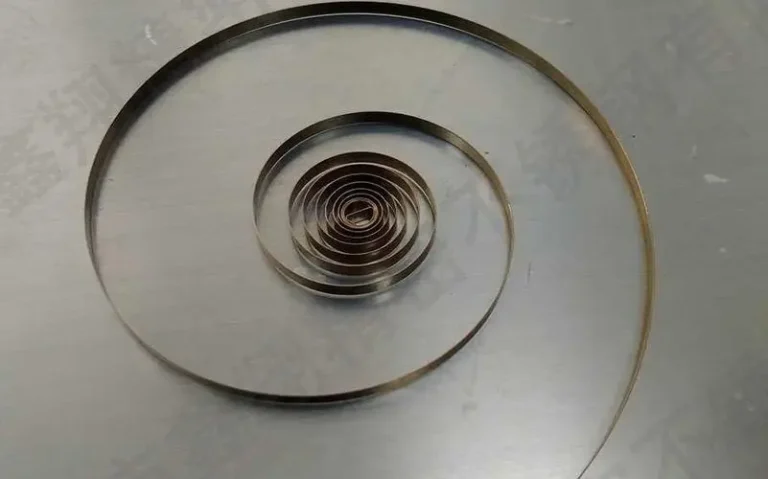
Stainless steel coil springs have more specialized use compared to the common spring because of their corrosion resistance. Here are some of the popular applications of stainless steel coil springs:
Stainless Steel AISI 316Ti (S31635) By The AISI System
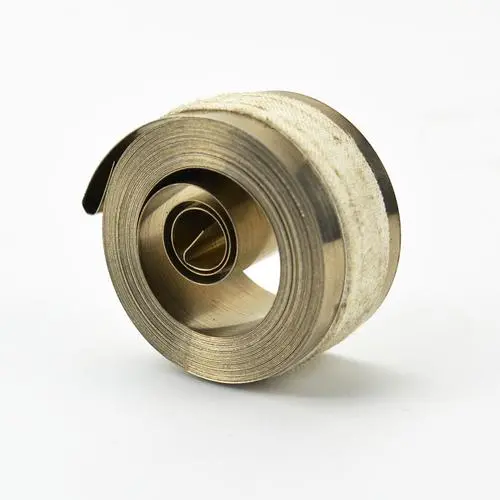
Stainless steel, particularly types like 301, 304, and 316, is an excellent spring material because of its high yield strength, corrosion resistance, and good heat resistance. These properties make it able to withstand the stress and strain of repeated compression or extension, which is essential for spring applications.
Heavy-duty stainless steel compression springs are made from high-strength stainless steel materials, like 316 stainless steel. They are designed to resist high compression loads in demanding environments. Due to their strength and corrosion resistance, these springs are often used in marine, medical, and food processing equipment.
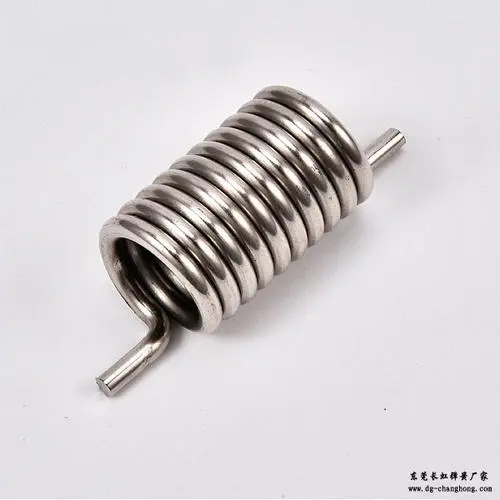
Yes, you can find a variety of stainless steel springs at Home Depot and other similar retailers, both in-store and online. These springs are often used for DIY projects, home repairs, and other general uses. However, for more specific or industrial applications, you might need to contact a specialized spring manufacturer or supplier.
Stainless steel extension springs are designed to operate with a tension load, meaning they become longer under load. These springs are often used in applications that require resistance to a pulling force, such as garage doors, vise-grip pliers, and trampolines.
Stainless steel spring wire is used to manufacture a variety of springs. This wire is drawn from stainless steel rods and is known for its excellent mechanical properties, including high tensile strength, yield strength, and heat resistance. It’s particularly beneficial in environments where the spring may be exposed to moisture or corrosive substances.
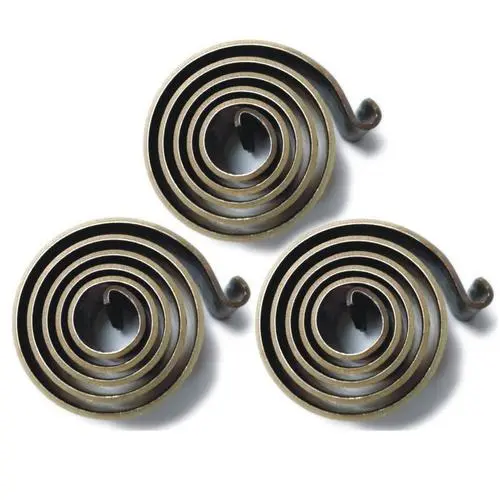
Material selection for springs depends on several factors, including the spring’s operational environment, required strength, potential exposure to corrosive substances, and temperature conditions. Stainless steel, particularly types 301, 304, and 316, is often used for its high strength, corrosion resistance, and good heat resistance. For applications where higher yield strength is required, materials such as phosphor bronze, beryllium copper, and certain types of high-carbon steel may be used.
Stainless spring steel sheets and strips are thin, flat pieces of stainless steel that have been hardened and tempered to give them the necessary strength and resilience for spring applications. They can be cut and formed into a wide variety of springs and are often used when corrosion resistance is a requirement.
Springs can be made from a wide variety of materials, depending on their intended application. These include various grades of steel, including high-carbon steel, alloy steel, stainless steel, and spring steel. Other materials include copper alloys such as phosphor bronze and beryllium copper, as well as more specialized materials such as Inconel and Hastelloy for high-temperature or highly corrosive environments.
Coil spring suspension is a system used in many vehicles to absorb and dissipate shock. It consists of helically formed coil springs that compress and extend to absorb the motion of the wheels, providing a smoother ride. The spring material, usually a high-strength, high-tensile steel, needs to withstand the repeated stress of these actions.
Coil springs are typically made of high-strength, high-tensile materials that can withstand the repeated stress of compression and extension. High-carbon steel is a common choice, as are various alloy steels. In corrosive environments or where a high degree of cleanliness is required, stainless steel may be used.
Helical coil springs, as the name suggests, are formed into a helix or coil shape. They are designed to resist compressive and tensile forces, returning to their original length when the load is removed. This type of spring can be found in a wide range of applications, from small electronic devices to large industrial machinery.
Yes, there are several types of coil springs, including compression springs, extension springs, and torsion springs. Compression springs are designed to resist a force or weight pushing them together, extension springs resist a force pulling them apart, and torsion springs resist rotational or twisting forces. The type of coil spring used depends on the specific application.
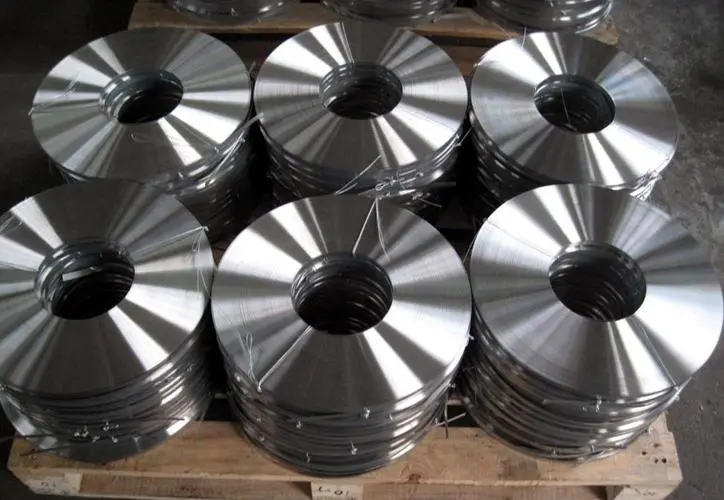
Coil spring specifications can include a variety of factors such as the material, wire diameter, coil diameter, free length (the length of the spring when it’s not under load), spring rate (the amount of force needed to compress or extend the spring by a given distance), and the maximum load the spring can handle. These specifications will vary depending on the spring’s intended application.
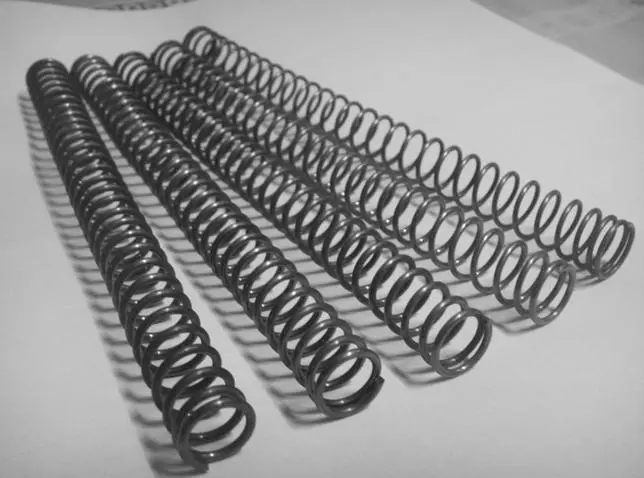
Suspension springs should be made of high-strength, high-tensile materials that can withstand the repeated stress of compression and extension without deforming permanently. They should also be resistant to fatigue, a type of failure that can occur after many cycles of stress. In addition, depending on the specific application, they may need to have good corrosion resistance.
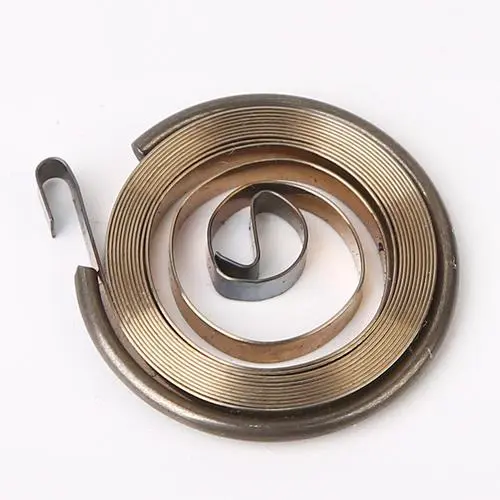
Several manufacturers and suppliers are known for their high-quality spring steel coil. These include United Steel Supply, Ace Wire Spring & Form Company, and Patrick Manufacturing, among others. It’s essential to consider the specific requirements of your application when choosing a supplier, including the material, size, and quantity of the coils you need.
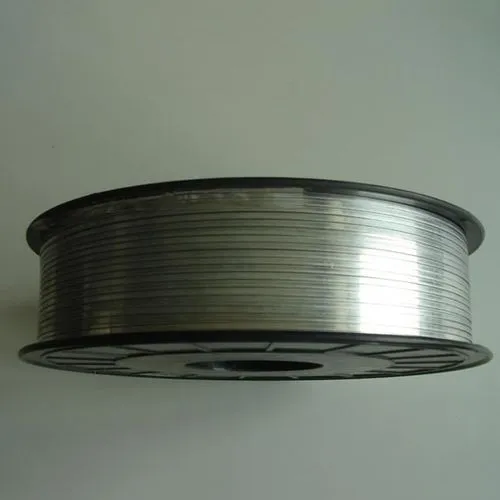
Springs are typically made of high-strength, high-tensile materials. The most common is high-carbon steel, but alloy steels are also used, especially for springs that need to withstand high stresses or operating temperatures. Stainless steel springs are used when corrosion resistance is important. In some cases, non-ferrous metals such as copper alloys or even plastics may be used.
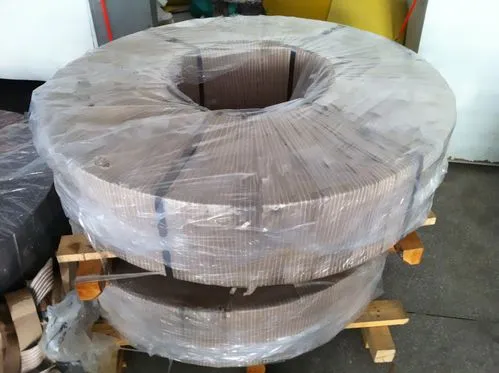
Home Depot carries a variety of springs, including some made of stainless steel. These range from small tension springs for DIY projects to larger compression springs for more substantial tasks. The exact availability can vary, so it’s best to check the Home Depot website or contact a local store for specific information.
Heavy-duty stainless steel compression springs are designed to withstand significant compressive forces. They’re often used in industrial equipment, automotive suspension systems, and heavy machinery. The stainless steel material provides excellent corrosion resistance, making these springs suitable for use in harsh environments.
316 stainless steel is a type of stainless steel that contains molybdenum, which gives it enhanced corrosion resistance compared to other types of stainless steel. This makes it an excellent choice for springs that will be exposed to corrosive environments, such as those involving water or certain chemicals. 316 stainless steel springs can be found in a variety of applications, including marine equipment, medical devices, and food processing equipment.
Stainless steel torsion springs are used in applications where a rotational or twisting force is applied. They are designed to store and release angular energy. Examples of where these might be used include garage doors, clipboards, clothespins, and window shades. The stainless steel material gives these springs good corrosion resistance.